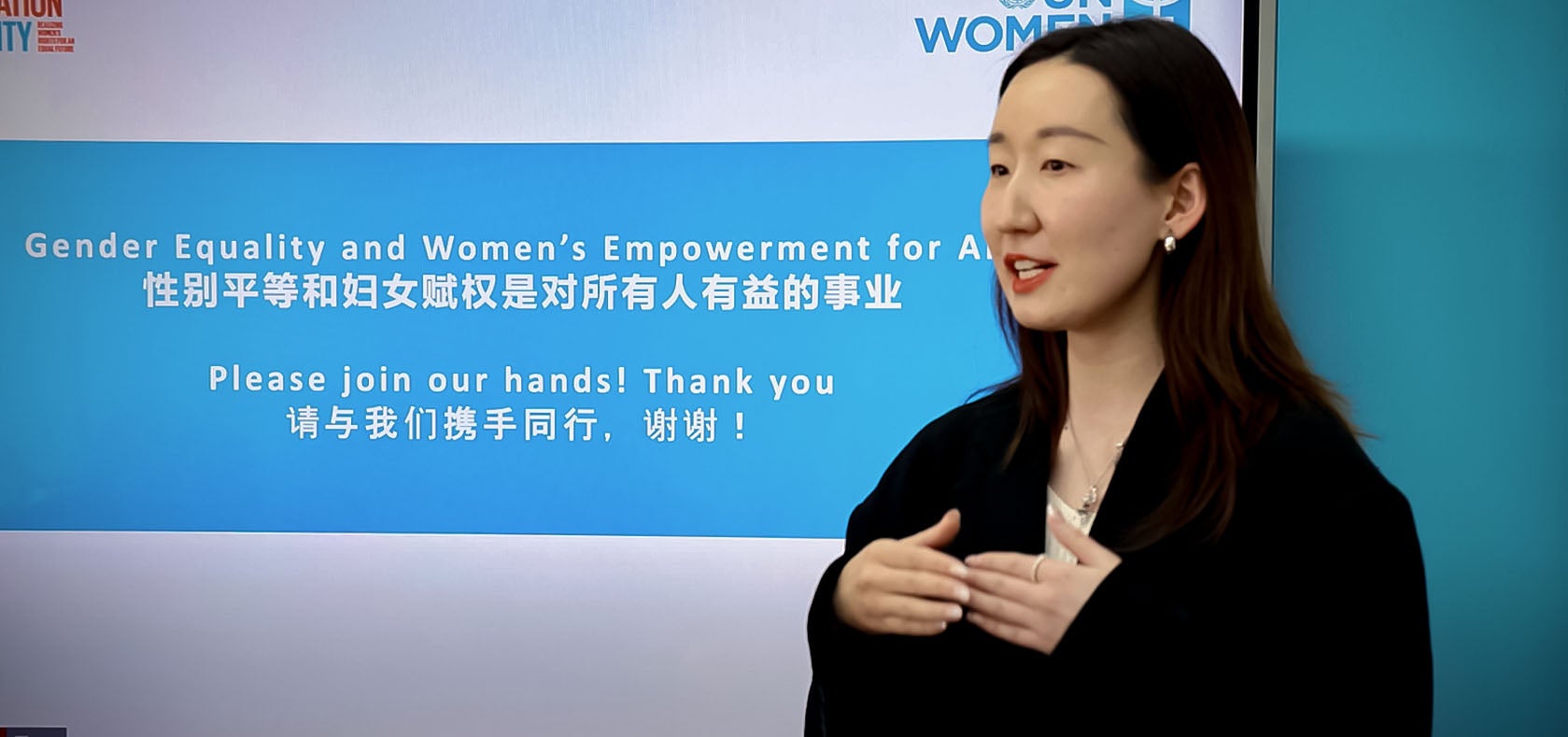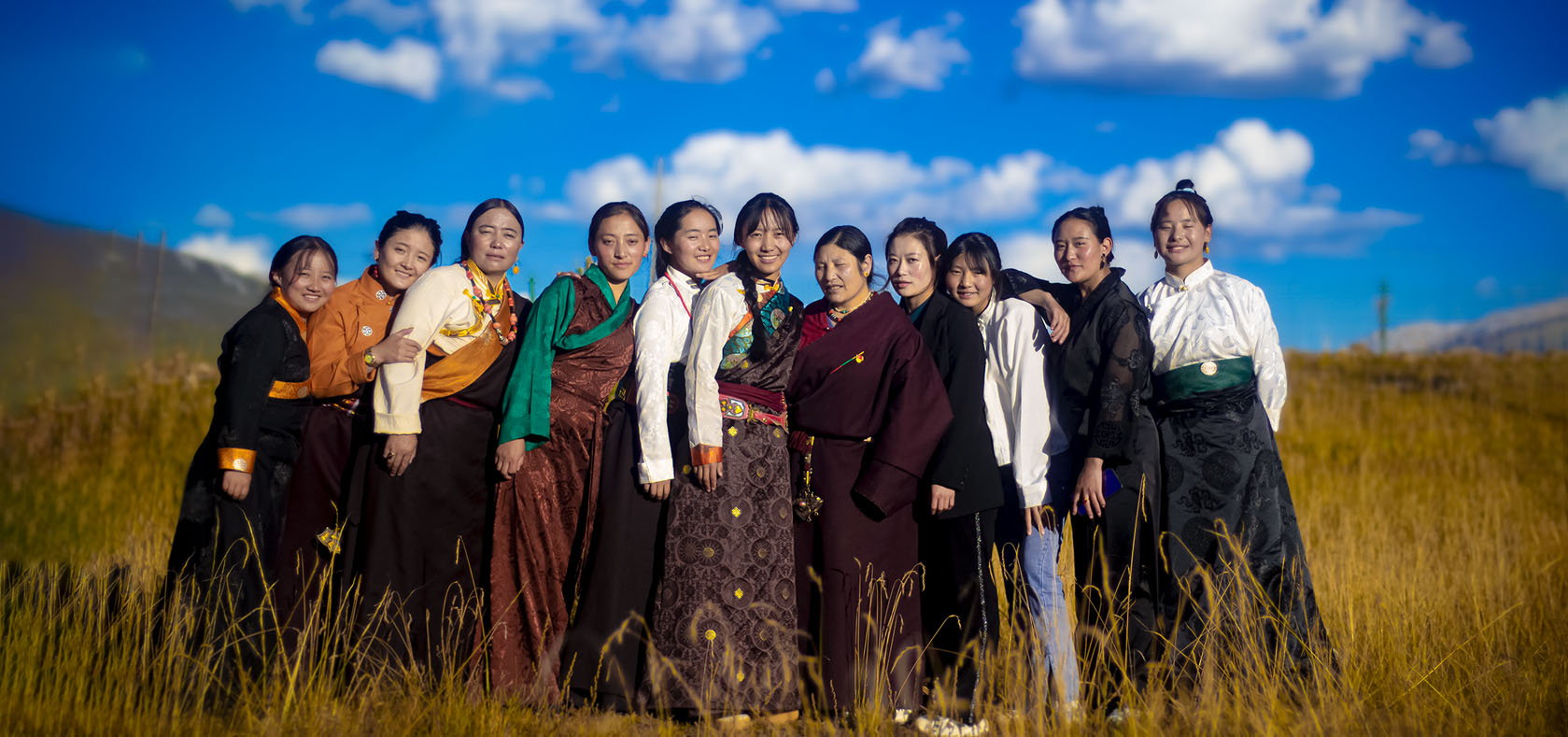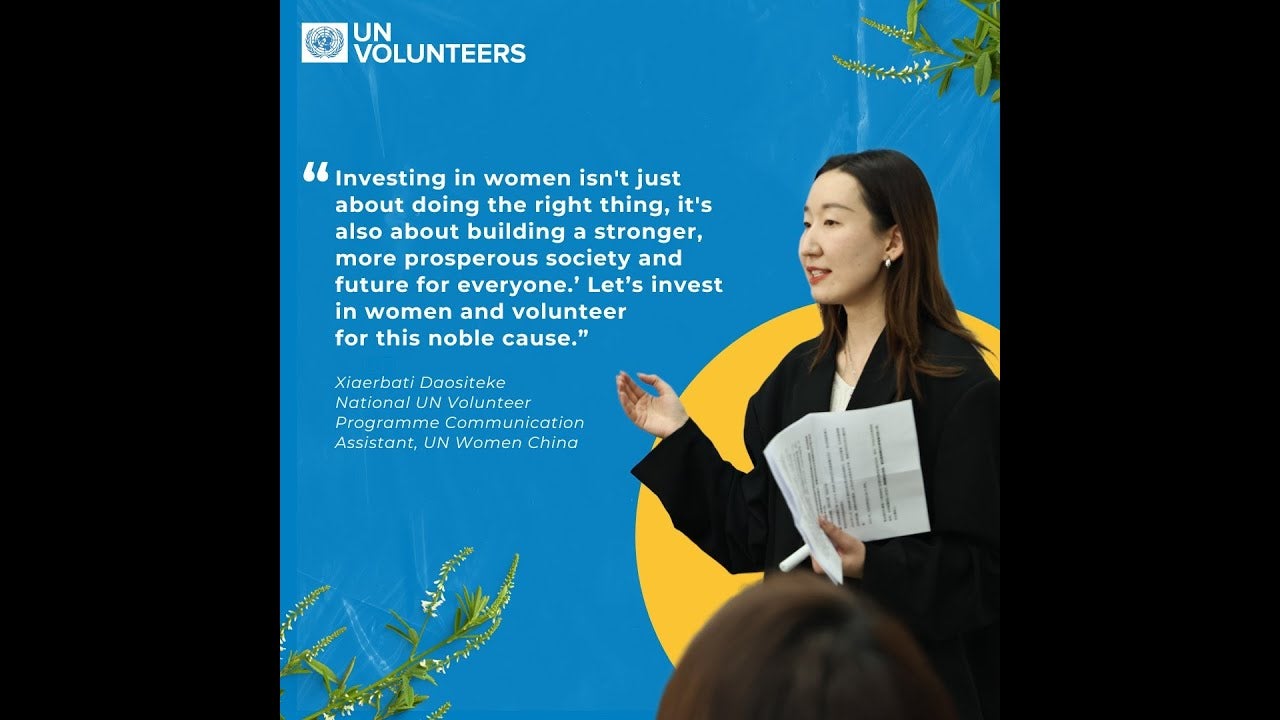At the center of the green transition
Date:
* Originally published on UN Volunteer website on 29 May 2024

Xiaerbati Daositeke hails from China. She completed her UN Volunteer assignment as Programme Communication Assistant with the UN Women China Office in March 2024. The passion for gender equality and women’s empowerment especially those from underserved communities stirred Xiaerbati to serve with Women-led Rural Community Renewable Energy Transition and Governance Project.
“Through volunteering, we not only provide immediate assistance and resources but also build capacities and empower young women and girls to become more resilient and take charge of their future, which in turn benefits the entire society." Xiaerbati Daositeke, national UN Volunteer, Programme Assistant with UN Women China.”
— Xiaerbati Daositeke, UN Volunteer
Xiaerbati was part of a team that provided vocational training and entrepreneurship opportunities to women from rural areas in Qinghai Province. These opportunities made it easy to access renewable energy, boosting agricultural productivity and mitigating climate change.
“Volunteerism plays a pivotal role in fostering long-term economic empowerment of women by creating sustainable support systems and fostering community resilience,” says Xiaerbati.
The project also gave women in Qinghai training on rural carbon neutrality strategies, renewable energy technologies, agricultural production and business skills, entrepreneurship and leadership.
“Through volunteering, we not only provide immediate assistance and resources but also build capacities and empower young women and girls to become more resilient and take charge of their future, which in turn benefits the entire society.” -- Xiaerbati Daositeke, national UN Volunteer, Programme Assistant with UN Women China.

“Women are at the heart of rural revitalization and green transition. As women make up around 70 per cent of the rural labour force in China, promoting renewable energy utilization and low-carbon transformation of agriculture is impossible without mobilizing and empowering rural women.”
— Smriti Aryal, Country Representative of UN Women, China.
The project is a converging point for the local government, non-governmental and civil society groups and encourages learning from examples of women’s access to and use of renewable energy technologies.
“Women are at the heart of rural revitalization and green transition. As women make up around 70 per cent of the rural labour force in China, promoting renewable energy utilization and low-carbon transformation of agriculture is impossible without mobilizing and empowering rural women.” says Smriti Aryal, Country Representative of UN Women, China.
Climate change disproportionately affects women, who are much more likely than men to be killed or displaced by natural disasters. At the same time, women are far from being equally involved in the technical solutions to climate change.
Through this project launched in 2023 by UN Women China, the Qinghai Rural Revitalization Bureau, and Qinghai Women’s Vocational Training School — women farmers in the western Chinese province in the Tibetan plateau have opportunities towards a green energy transition. This not only contributes to carbon reduction in rural areas, but also enables increased productivity and consequently an increase in the income of women farmers.
